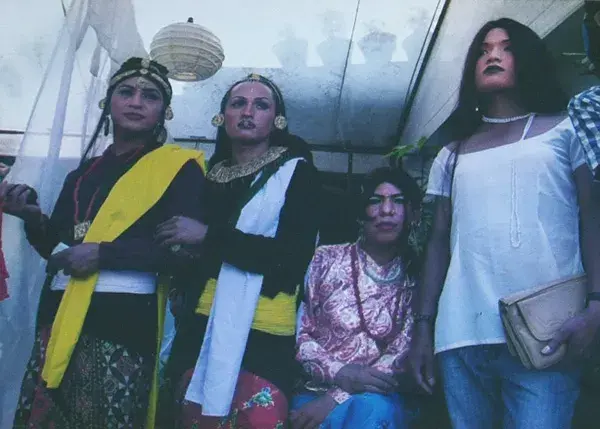After a decade long insurgency, the Himalayan country of Nepal has been in political limbo for quite some time. But Nepal has made rapid progress on at least one front: the legal recognition of gays and lesbians.
Up until two years ago, Nepal's gays, lesbians and trans-genders faced widespread harassment. But since then, the country's high court has declared that gays and lesbians have equal rights and that discrimination would not be tolerated.
Nepal's first LGBT rights organization was established nearly a decade ago. The Blue Diamond Society, which started in Kathmandu, has been at the forefront of promoting rights for sexual minorities and now operates in about 40 cities. Sunil Babu Pant, chairman of Blue Diamond Society is the country's first openly gay member of parliament. In the last few years, cities like Kathmandu have seen gay pride parades, something that would have been unimaginable just five years ago.
Nepal, the only country in South Asia to recognize the legal rights of gays, is now on track to legalize same sex marriage. "Even compared to countries like India and China, for example, we don't have religious fundamentalism, which is such a relief," Pant said, explaining that the near absence of fundamentalist groups in the country had helped move the legal decisions forward.
But acceptance by the law doesn't always translate into acceptance by the general public.
Even if not fundamentalist, the majority of Nepalis are Hindus, a religion that doesn't view homosexuality favorably. Nepal, which was once the only Hindu kingdom in the world, became a secular country only in 2006.
Despite the legal backing, many gays and lesbians say the religious aspect of Nepal that dictates the country's social life makes it hard for them to come out to their families.
Pradeep Khadka works as an HIV/AIDS researcher among Nepal's LGBT community. Khadka, who identified himself as gay -- and sometimes bisexual during our conversation -- refused to be recorded for the interview and did not want his picture taken either. His reason was simple: despite the tremendous gains made by the gay community in Nepal, he says he doesn't feel safe coming out to his own family, including his wife.
"I can't imagine what it will be like if my wife finds out that I am gay," he said.
Khadka, who explained he was forced into marriage with a woman nine years ago, said that there is a significant portion of Nepal's gay community that lives with the fear of being ostracized most likely by family members.
"It is easy to make the government and educated people understand about homosexuality, but it is the society that is difficult," said Subash Pokharel, a member of Blue Diamond.
Other members of the gay rights group say educating Nepali society is a challenging task mostly because of its cultural and ethnic diversity, which makes the spreading of one message, one of tolerance, that much harder.
"We have a large diverse society and it is difficult to change their perception on something that is rooted for so long," Pokharel said.
To dispel fears of gays and lesbians and usher in a more open Nepali community, the Blue Diamond Society is approaching youth groups and other organizations in an attempt to raise awareness about homosexuality. They hope that the values of Nepali society will soon catch up to its progressive laws.
"I think in the next five years, the society will be in a much better position to accept and understand homosexuality," Pokharel said.







